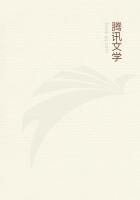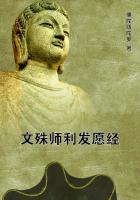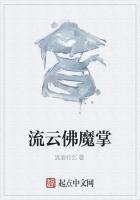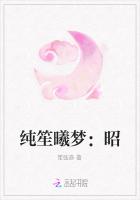Edward Bok was always interested in the manner in which personality was expressed in letters.For this reason he adopted, as a boy, the method of collecting not mere autographs, but letters characteristic of their writers which should give interesting insight into the most famous men and women of the day.He secured what were really personality letters.
One of these writers was Mark Twain.The humorist was not kindly disposed toward autograph collectors, and the fact that in this case the collector aimed to raise the standard of the hobby did not appease him.
Still, it brought forth a characteristic letter:
"I hope I shall not offend you; I shall certainly say nothing with the intention to offend you.I must explain myself, however, and I will do it as kindly as I can.What you ask me to do, I am asked to do as often as one-half dozen times a week.Three hundred letters a year! One's impulse is to freely consent, but one's time and necessary occupations will not permit it.There is no way but to decline in all cases, ****** no exceptions, and I wish to call your attention to a thing which has probably not occurred to you, and that is this: that no man takes pleasure in exercising his trade as a pastime.Writing is my trade, and I exercise it only when I am obliged to.You might make your request of a doctor, or a builder, or a sculptor, and there would be no impropriety in it, but if you asked either of those for a specimen of his trade, his handiwork, he would be justified in rising to a point of order.It would never be fair to ask a doctor for one of his corpses to remember him by.
"MARK TWAIN".
At another time, after an interesting talk with Mark Twain, Bok wrote an account of the interview, with the humorist's permission.Desirous that the published account should be in every respect accurate, the manuscript was forwarded to Mark Twain for his approval.This resulted in the following interesting letter:
"MY DEAR MR.BOK:
"No, no--it is like most interviews, pure twaddle, and valueless.
"For several quite plain and ****** reasons, an 'interview' must, as a rule, be an absurdity.And chiefly for this reason: it is an attempt to use a boat on land, or a wagon on water, to speak figuratively.Spoken speech is one thing, written speech is quite another.Print is a proper vehicle for the latter, but it isn't for the former.The moment 'talk'
is put into print you recognize that it is not what it was when you heard it; you perceive that an immense something has disappeared from it.That is its soul.You have nothing but a dead carcass left on your hands.Color, play of feature, the varying modulations of voice, the laugh, the smile, the informing inflections, everything that gave that body warmth, grace, friendliness, and charm, and commended it to your affection, or at least to your tolerance, is gone, and nothing is left, but a pallid, stiff and repulsive cadaver.
"Such is 'talk,' almost invariably, as you see it lying in state in an 'interview.' The interviewer seldom tries to tell one how a thing was said; he merely puts in the naked remark, and stops there.When one writes for print, his methods are very different.He follows forms which have but little resemblance to conversation, but they make the reader understand what the writer is trying to convey.And when the writer is ****** a story, and finds it necessary to report some of the talk of his characters, observe how cautiously and anxiously he goes at that risky and difficult thing:
"'If he had dared to say that thing in my presence,' said Alfred, taking a mock heroic attitude, and casting an arch glance upon the company, 'blood would have flowed.'
"'If he had dared to say that thing in my presence,' said Hawkwood, with that in his eye which caused more than one heart in that guilty assemblage to quake, 'blood would have flowed.'
"'If he had dared to say that thing in my presence,' said the paltry blusterer, with valor on his tongue and pallor on his lips, 'blood would have flowed.'
"So painfully aware is the novelist that naked talk in print conveys no meaning, that he loads, and often overloads, almost every utterance of his characters with explanations and interpretations.It is a loud confession that print is a poor vehicle for 'talk,' it is a recognition that uninterpreted talk in print would result in confusion to the reader, not instruction.
"Now, in your interview you have certainly been most accurate, you have set down the sentences I uttered as I said them.But you have not a word of explanation; what my manner was at several points is not indicated.
Therefore, no reader can possibly know where I was in earnest and where I was joking; or whether I was joking altogether or in earnest altogether.Such a report of a conversation has no value.It can convey many meanings to the reader, but never the right one.To add interpretations which would convey the right meaning is a something which would require--what? An art so high and fine and difficult that no possessor of it would ever be allowed to waste it on interviews.
"No; spare the reader and spare me; leave the whole interview out; it is rubbish.I wouldn't talk in my sleep if I couldn't talk better than that.
"If you wish to print anything, print this letter; it may have some value, for it may explain to a reader here and there why it is that in interviews as a rule men seem to talk like anybody but themselves.
"Sincerely yours, "MARK TWAIN."
The Harpers had asked Bok to write a book descriptive of his autograph-letter collection, and he had consented.The propitious moment, however, never came in his busy life.One day he mentioned the fact to Doctor Oliver Wendell Holmes and the poet said: "Let me write the introduction for it." Bok, of course, eagerly accepted, and within a few days he received the following, which, with the book, never reached publication:
"How many autograph writers have had occasion to say with the Scotch trespasser climbing his neighbor's wall, when asked where he was going Bok again!'

